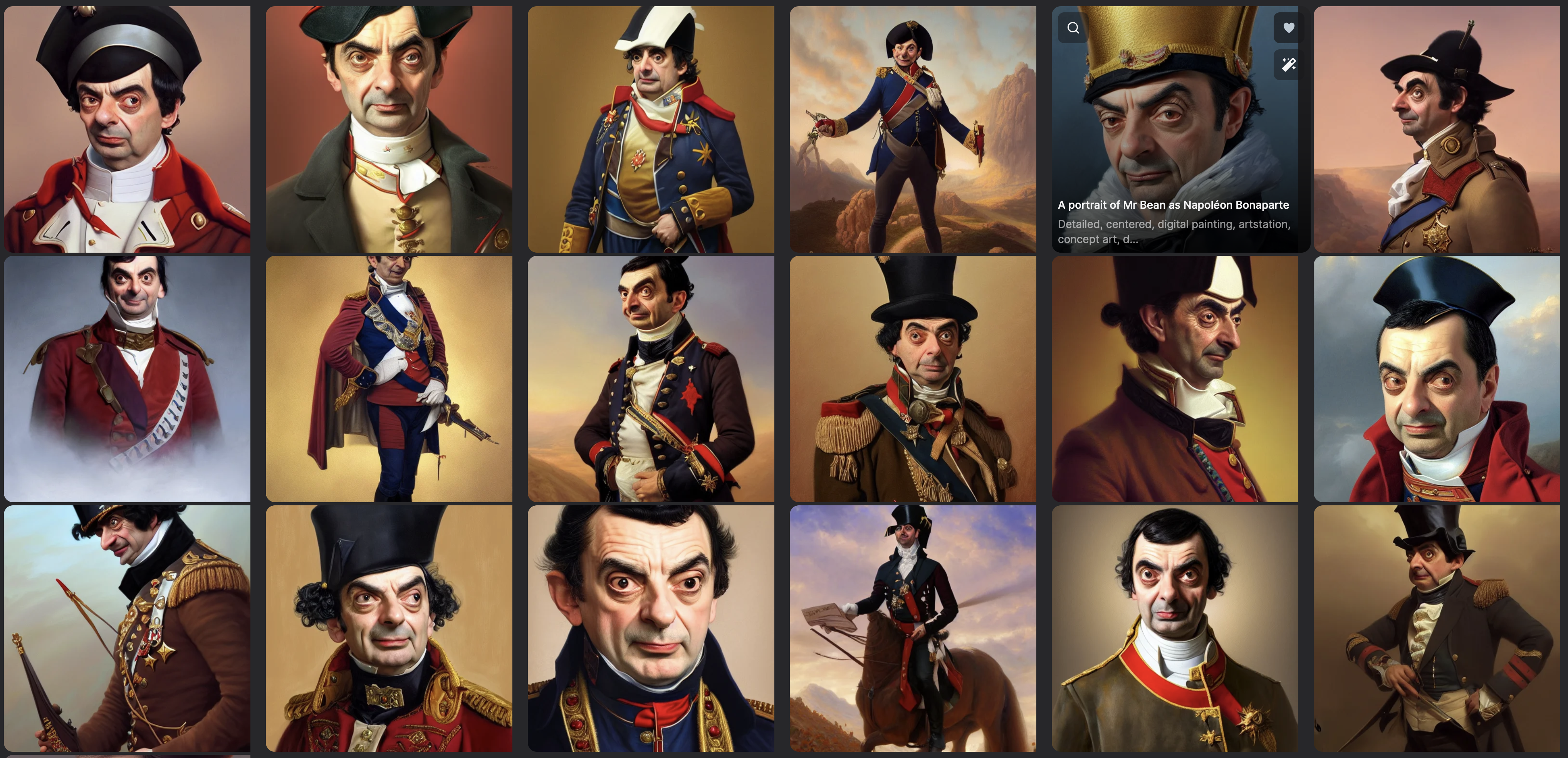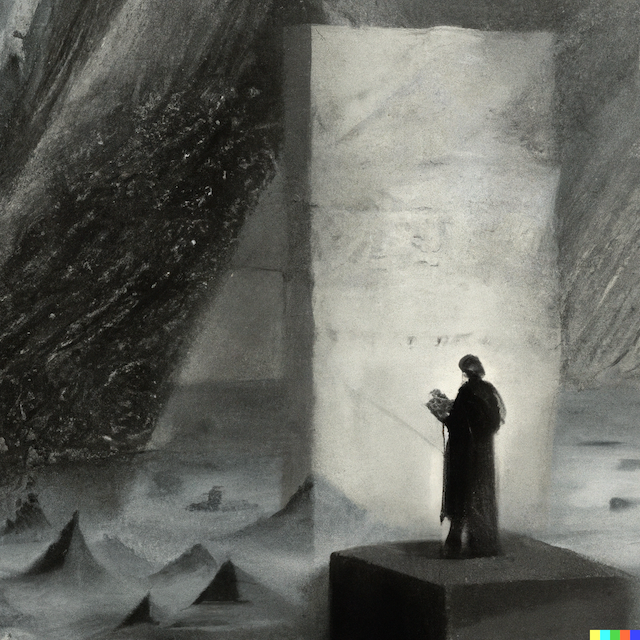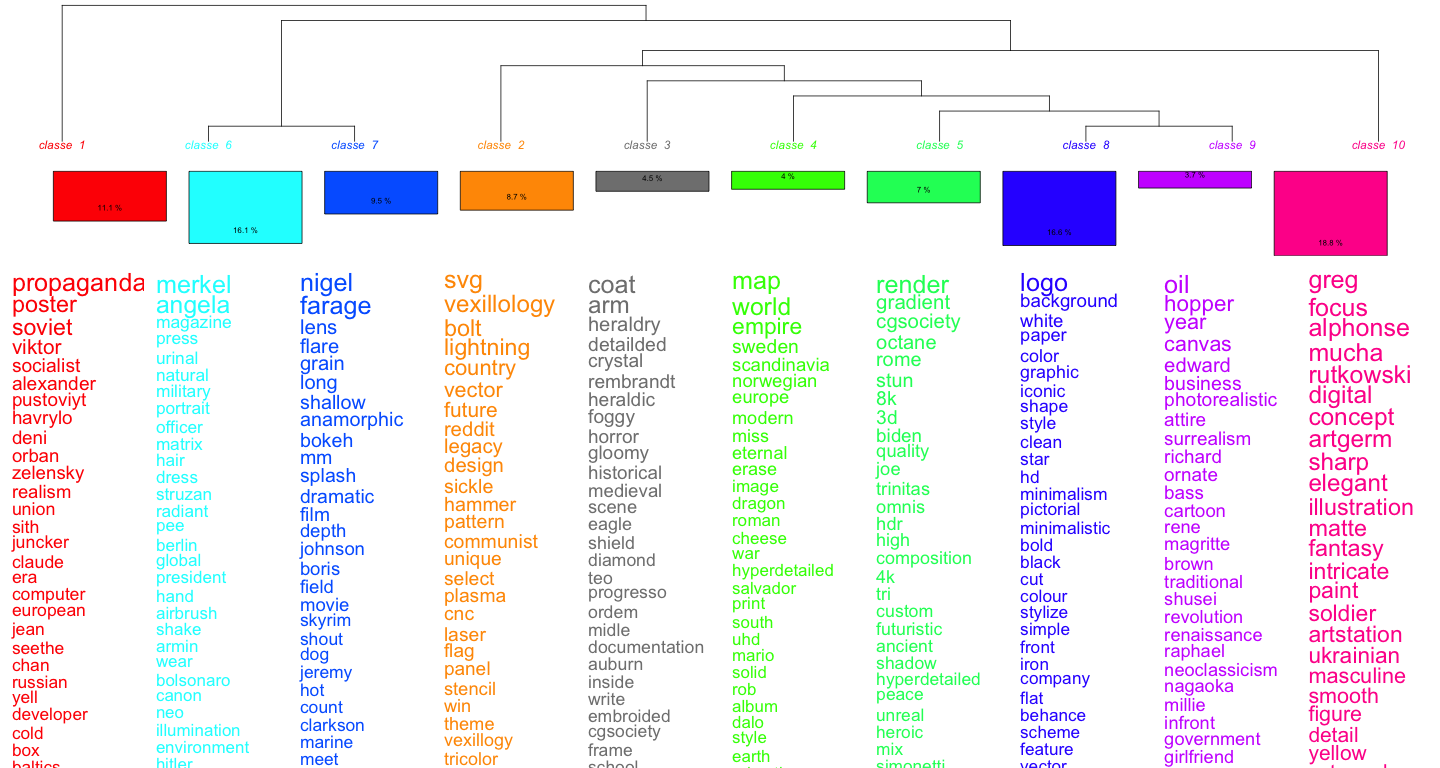prompting the past
Frédéric Clavert
(C²DH,
University of Luxembourg)
inactinique.net / github.com/inactinique
@inactinique@hcommons.social

“a portrait of Mr Bean as Napoléon Bonaparte” – obviously a more accurate representation of Napoléon than the Ridley Scott movie. Source: lexica.art
digital history and digital memory studies litterature
- (Kansteiner (2022)): what would be a specifically trained generative AI for historians
- (Makhortykh (2023)), (Walden and Marrison (2023)): possibilities and risks of AI, particularly generative AI, in Holocaust studies
- (Hutchinson (2022)): online software to understand what generative AI systems “know” about history
questionning the past…
…as historian’s basic epistemological operation
…with ‘stochastic parrots’? (Bender et al. (2021))

‘“A historian facing massive data” by Caspar David Friedrich’
prompts as
- primary sources
- artefacts that tells us a lot about the societies of the (near) past
- open doors to users’ imagination about the past
- BUT result of a user-machine negotiation
Harvesting data
- strong barrier to that kind of research
- ethics challenges (D/ARC community, AoIR Ethics Guidelines.)
- different paths to get data
a balanced corpus?
Analyzing data
 Analysis of the corpus of prompts with IRaMuTeQ
Analysis of the corpus of prompts with IRaMuTeQ
Conclusion
Code
Short paper DH2024. Available on Github, with code notebook
References
Bender, Emily M., Timnit Gebru, Angelina McMillan-Major, and Shmargaret
Shmitchell. 2021. “On the Dangers of Stochastic
Parrots: Can Language Models Be Too Big?” In
Proceedings of the 2021 ACM Conference on
Fairness, Accountability, and
Transparency, 610–23. FAccT ’21. New
York, NY, USA: Association for Computing Machinery. https://doi.org/10.1145/3442188.3445922.
Hutchinson, Daniel. 2022. “What Do AIs
’Know’ About History? A Digital History
Experiment.”
Kansteiner, Wulf. 2022. “Digital Doping for
Historians: Can History, Memory,
and Historical Theory Be Rendered Artificially
Intelligent?” History and Theory 61 (4): 119–33.
https://doi.org/10.1111/hith.12282.
Makhortykh, Mykola. 2023. “Open Forum:
Possibilities and Risks of Artificial
Intelligence for Holocaust Memory.”
Eastern European Holocaust Studies 0 (0). https://doi.org/10.1515/eehs-2023-0053.
Makhortykh, Mykola, Victoria Vziatysheva, and Maryna Sydorova. 2023.
“Generative AI and Contestation and
Instrumentalization of Memory About the
Holocaust in Ukraine.” Eastern
European Holocaust Studies, November. https://doi.org/10.1515/eehs-2023-0054.
Makhortykh, Mykola, Eve M. Zucker, David J. Simon, Daniel Bultmann, and
Roberto Ulloa. 2023. “Shall Androids Dream of Genocides?
How Generative AI Can Change the Future of
Memorialization of Mass Atrocities.” Discover Artificial
Intelligence 3 (1): 28. https://doi.org/10.1007/s44163-023-00072-6.
Walden, Victoria Grace, and Kate Marrison. 2023. “Recommendations
for Using Artificial Intelligence and Machine
Learning for Holocaust Memory and
Education.” REFRAME. https://doi.org/10.20919/ELVH8804.